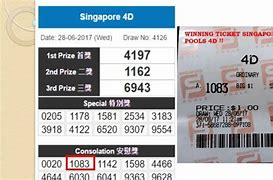
Kraken Exchange Adalah
Two-year Home-Country Physical Presence Requirement
If you participate in an Exchange Visitor Program and meet one of the criteria below, at the end of your program you must return to your home country for two years. This requirement under immigration law is based on section 212(e) of the Immigration and Nationality Act.
Conditions for the Two-year Home-country Physical Presence Requirement - J-visa holders must follow the two-year home-country physical presence requirement if the following is true:
Restrictions - If the two-year home-country physical presence requirement applies to you, you must return to your home country for a cumulative total period of at least two years before you can do any of the following:
Waiver of Two Year Home-Country Physical Presence Rule - If you are subject to the requirement to return to your home country, you may pursue a waiver of the requirement. Select Waiver of the Exchange Visitor Two-Year Home-Country Physical Presence Requirement to learn more about this requirement and how to request a waiver.
Complete the Online Visa Application
Appointment Wait Time
Check the estimated wait time for a nonimmigrant visa interview appointment at a U.S. Embassy or Consulate.
Gather Required Documentation
Gather and prepare the following required documents before your visa interview:
You must read the Legal Rights and Protections pamphlet to learn about your rights in the United States and protection available to you. Review this important pamphlet before applying for your visa.
The website where you apply may suggest or require you provide additional documents related to:
Evidence of your employment and/or your family ties may be enough to show your reason for travel and your intent to return to your home country. If you cannot cover all the costs for your travel, you may show evidence that another person will cover some or all costs for your travel.
Review the instructions for how to apply for a visa on the website of the embassy or consulate where you will apply.
Is your network connection unstable or browser outdated?
Knowledge, with its wide classifications, can be parsed into individual and collective knowledge. Executives recruit followers based on their individual knowledge, which refers to that person’s skills, prior-knowledge, and proficiencies—sometimes referred to as competencies. Collective knowledge, on the other hand, has been defined as “organizing principles, routines and practices, top management schema, and relative organizational
Generally, a citizen of a foreign country who wishes to enter the United States must first be granted a visa. Either a nonimmigrant visa for a temporary stay, or an immigrant visa to permanently move to the United States. Exchange visitor (J) visas are nonimmigrant visas for individuals approved to participate in exchange visitor programs in the United States.
There are several steps to apply for a visa. The order of these steps and how you complete them may vary by U.S. Embassy or Consulate. Please consult the instructions on the embassy or consulate website.
Entering the United States
A visa does not guarantee entry into the United States. A visa only allows a foreign citizen to travel to a U.S. port-of-entry (generally an airport or land border) and request permission to enter the United States. The Department of Homeland Security (DHS), U.S. Customs and Border Protection (CBP) officials at the port of entry have authority to permit or deny admission to the United States.
After you present your passport, visa, and DS-2019 at the port-of-entry, a CBP official will make this decision. Once you are allowed to enter the United States, the CBP official will provide an admission stamp or paper Form I-94, Arrival/Departure Record.
Learn about procedures for students (with F or M visas) or exchange visitors (J Visas) entering the United States on the CBP website under Arrival Procedures for Students or Exchange Visitors. Visit the CBP website to find out about entering the United States. Learn about rules, restrictions, and what food and agricultural products are restricted. You can also find information about other goods that are restricted or prohibited.
If your plans change while in the United States (for example, you receive a job offer), you may be able to request a change in your nonimmigrant status through U.S. Citizenship and Immigration Services (USCIS). See Change My Nonimmigrant Status on the USCIS website to learn more.
While you are in the United States, receiving a change of status from USCIS does not require you to apply for a new visa. However, once you depart the United States, you must apply for a visa at a U.S. Embassy or Consulate in the appropriate category for your travel.
The knowledge of a foreign language, its level and type of certificate should be in accordance with the requirements of the selected university. The exact requirements should be available on the website of the selected university. It is the student’s responsibility to get acquainted with the requirements of the partner university.
The student selects a maximum of three universities from the list of WNPiSM agreements in order from most to least preferred, taking into account the required language proficiency and subject offer of the host university. Students from all majors administered by WNPiSM have equal access to all Faculty agreements.
It is the student’s responsibility to familiarize himself/herself with the Regulations of Bilateral Exchange before submitting a recruitment application for an exchange under the program of the bilateral agreement.
Regulations for year 2024/2025 are available HERE.
Recruitment for exchange under the program of the bilateral agreement in the academic year 2024/2025 will be organized in two rounds.
Submitting ofdocuments
Results will beannounced on
China, Japan, South Africa, Thailand, Taiwan
22.01.2024 – 02.02.2024
Brazil, Georgia, India, Indonesia, Kazakhstan, Malesia, South Korea, Vietnam, Mexico
26.02.2024 – 08.03.2024
Documents should be submitted in person – in room 309 in Auditorium Building during office hours.
Schedule an Interview
Interviews are generally required for visa applicants with certain limited exceptions below. Consular officers may require an interview of any visa applicant.
Then an interview is:
Generally not required
Required (some exceptions for renewals)
Generally not required
You should generally schedule an appointment for your visa interview at the U.S. Embassy or Consulate in the country where you live. You may schedule your interview at another U.S. Embassy or Consulate, but be aware that in some cases it may be more difficult to demonstrate that you qualify for a visa outside of the country where you live. Wait times for interview appointments vary by location, season, and visa category. You should apply for your visa early. Review the interview wait time for the location where you will apply:
Eligibility conditions for:
Students with citizenship other than that of a Member State of the European Union or the European Economic Area are required, in connection with their intended stay as a participant in a bilateral exchange programme, to check the rules relating to entry to the territory of the host country.
Students of paid studies administered by WNPiSM are obliged to pay the tuition fees for the course of study at WNPISM also for the period of the exchange.
Students in their 3rd year of studies at Bachelor’s degree can participate conditionally in the qualification. The condition of the trip is documenting the continuation of second-cycle studies in the fields administered by WNPiSM.The trip is possible only in the summer semester of the academic year 2021/2022. In justified cases, the Dean’s Plenipotentiary for International Cooperation and Research Programmes and the Mobility Coordinator, after consulting the Vice Dean for Students/Director of the Teaching Unit, may grant permission for the trip in the winter semester of the first year of the second degree studies.
Participants of Doctoral Schools are entitled to participate in the qualification, provided that:
The minimum number of ECTS credits (after conversion) is at least 10 per semester.
Attend Your Visa Interview
A consular officer will interview you to determine whether you are qualified to receive an exchange visitor visa. You must establish that you meet the requirements under U.S. law to receive a visa.
Ink-free, digital fingerprint scans are taken as part of the application process. They are usually taken during your interview, but this varies based on location.
After your visa interview, the consular officer may determine that your application requires further administrative processing. The consular officer will inform you if this is required.
After your visa is approved, you may need to pay a visa issuance fee (if applicable). You will also need to make arrangements for your passport and visa to be returned to you. Review the visa processing times to learn more.



